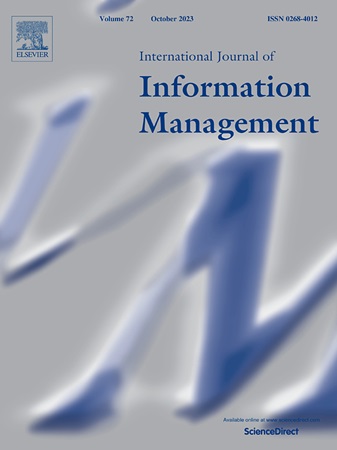Customer reactions to generative AI vs. real images in high-involvement and hedonic services
IF 27
1区 管理学
Q1 INFORMATION SCIENCE & LIBRARY SCIENCE
International Journal of Information Management
Pub Date : 2025-07-22
DOI:10.1016/j.ijinfomgt.2025.102954
引用次数: 0
Abstract
Given the emerging opportunities of generative AI for business and marketing, many companies are wondering whether they should use images created through generative AI for commercial purposes. Prior research on hospitality communication has not solved this issue, as AI-generated images are occasionally promoted as effective marketing tools across various service contexts, while other scholars caution against their use due to the significant concerns they may trigger among consumers. Following a mixed-methods approach to find boundary conditions, our research reveals that consumers prefer hospitality services advertised with real images, rather than those featuring AI-generated images. Nevertheless, this effect is moderated by two key factors. In particular, the research reveals that the negative influence of using generative AI images on intentions to use and recommend the service are strengthened for hedonic rather than utilitarian services, and for highly rather than lowly involved customers. A qualitative study further explores the reasons behind this rejection, highlighting that customers perceive companies using AI-generated images as impersonal, less professional, lacking credibility, and potentially misleading, as they impede customers’ ability to envision the actual experience. Implications for management suggest that, while generative AI holds promise for enhancing communication, companies should use AI-generated images with caution. The discussion also proposes future research directions to explore the broader implications of AI use in marketing.
在高参与和享乐服务中,客户对生成人工智能与真实图像的反应
鉴于生成式人工智能在商业和营销方面的新机会,许多公司都在考虑是否应该将生成式人工智能创建的图像用于商业目的。之前对酒店沟通的研究并没有解决这个问题,因为人工智能生成的图像偶尔会在各种服务环境中被推广为有效的营销工具,而其他学者则警告不要使用它们,因为它们可能会引发消费者的严重担忧。通过混合方法寻找边界条件,我们的研究表明,消费者更喜欢用真实图像广告的酒店服务,而不是那些以人工智能生成的图像为特色的服务。然而,两个关键因素缓和了这种影响。特别是,研究表明,使用生成式人工智能图像对使用和推荐服务的意图的负面影响在享乐服务而不是功利服务中得到加强,在高度参与而不是低参与的客户中得到加强。一项定性研究进一步探讨了这种拒绝背后的原因,强调客户认为公司使用人工智能生成的图像是非个人的、不专业的、缺乏可信度的,并且可能具有误导性,因为它们阻碍了客户想象实际体验的能力。对管理的影响表明,虽然生成式人工智能有望加强沟通,但企业应谨慎使用人工智能生成的图像。讨论还提出了未来的研究方向,以探索人工智能在营销中应用的更广泛影响。
本文章由计算机程序翻译,如有差异,请以英文原文为准。
求助全文
约1分钟内获得全文
求助全文
来源期刊

International Journal of Information Management
INFORMATION SCIENCE & LIBRARY SCIENCE-
CiteScore
53.10
自引率
6.20%
发文量
111
审稿时长
24 days
期刊介绍:
The International Journal of Information Management (IJIM) is a distinguished, international, and peer-reviewed journal dedicated to providing its readers with top-notch analysis and discussions within the evolving field of information management. Key features of the journal include:
Comprehensive Coverage:
IJIM keeps readers informed with major papers, reports, and reviews.
Topical Relevance:
The journal remains current and relevant through Viewpoint articles and regular features like Research Notes, Case Studies, and a Reviews section, ensuring readers are updated on contemporary issues.
Focus on Quality:
IJIM prioritizes high-quality papers that address contemporary issues in information management.
 求助内容:
求助内容: 应助结果提醒方式:
应助结果提醒方式:


